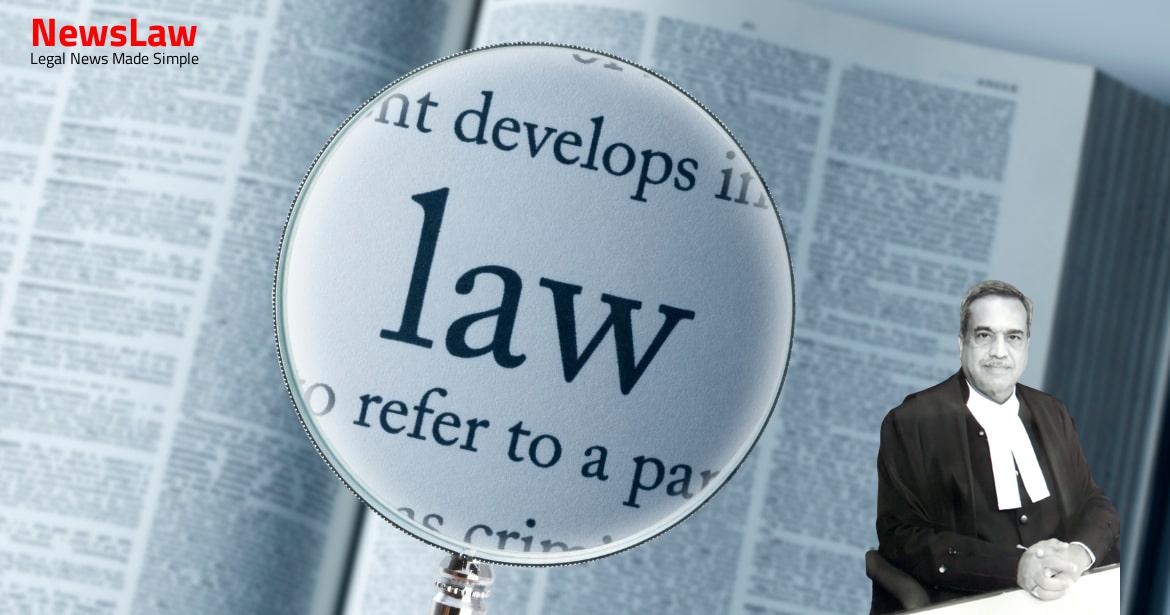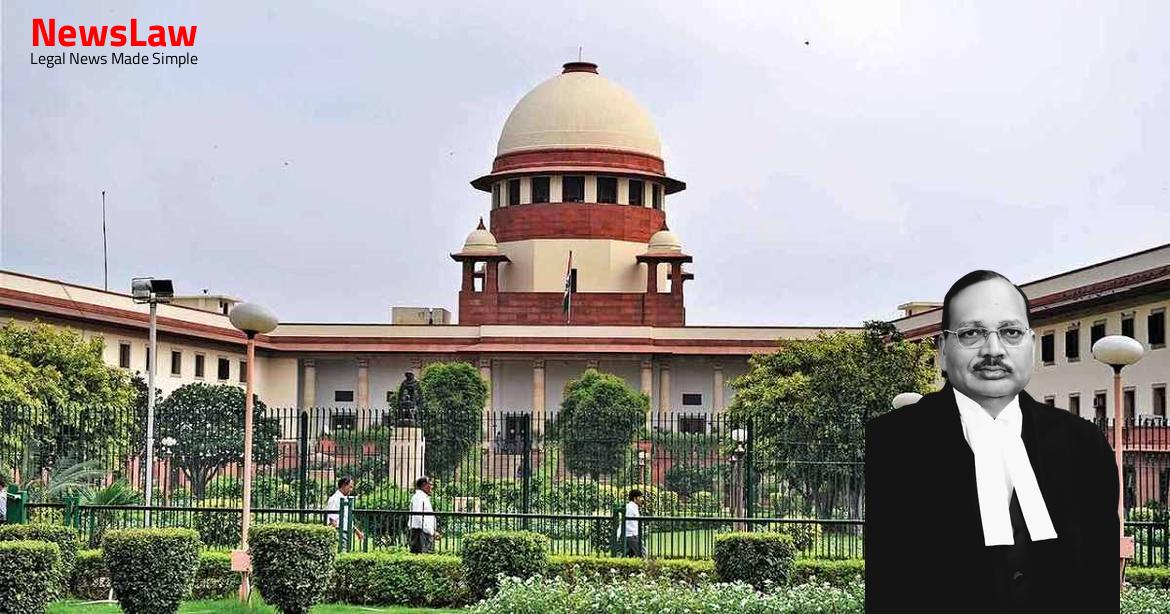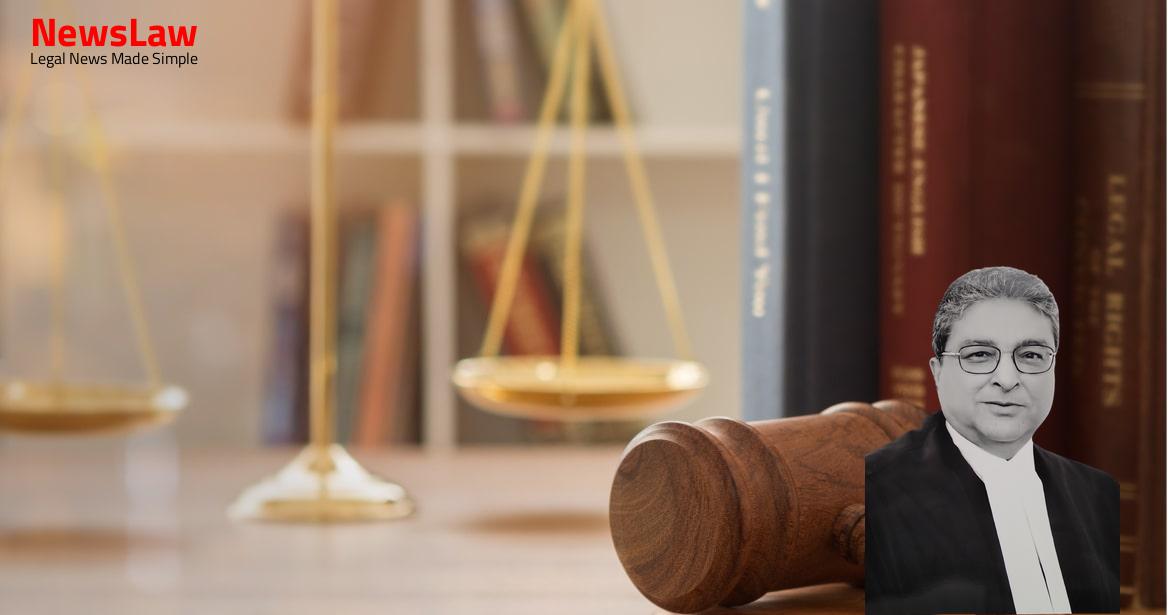In the case of Babu Sahebagouda Rudragoudar vs. State of Karnataka, the Supreme Court of India revisited the acquittal of the respondent. The judgment follows a thorough analysis of the evidence presented during the trial court proceedings. Stay updated with the latest legal developments by reading the detailed summary of this significant case.
Facts
- The appellants, Babu Sahebagouda Rudragoudar(A-1), Alagond Sahebagouda Rudragoudar(A-2), and Mudakappa @ Gadegappa Rudragoudar(A-3), along with Sahebagouda Gadageppa Rudragoudar(A-4), Basappa Avvanna @ Huvanna Giradi @ Chigari (A-5) and Basappa Dundappa @ Dondiba Hanjagi (A-6) faced trial for charges under Sections 143, 147, 148, 506(2), and Section 302 read with Section 149 of the IPC.
- A-1, A-2, A-3, and A-4 attacked Malagounda, causing him to fall down.
- The incident was narrated to family members by the complainant(PW-1).
- Charges were framed against the accused after investigation.
- The complaint made post-investigation lacked evidentiary value due to Section 162 of CrPC.
- The Medical Officer’s opinion on the time of death contradicted prosecution witnesses’ accounts.
- Evidence of different eyewitnesses showed inconsistencies and different versions of events, casting doubt on the prosecution’s truthfulness.
- Police visited the scene at night, questioning the delay in filing the complaint the next morning.
- The complainant(PW-1) hid to avoid being beaten by the accused.
- No defense evidence was presented during the trial.
- The State filed an appeal challenging the acquittal of the accused appellants (A-1, A-2, and A-3).
- The High Court allowed the appeal, convicted A-1, A-2, and A-3 for the offense under Section 302 read with Section 34 IPC, sentencing them to life imprisonment and a fine.
- A-4’s appeal stood abated due to his death, while appeals against A-5 and A-6 were dismissed.
- Out of the fine amount, Rs. 10,000 was to be paid to the State Government and Rs. 1,40,000 to the complainant (PW-1).
- The trial court acquitted all accused due to inconsistencies and doubts in prosecution evidence.
- The trial court noted contradictions in witness testimonies regarding assailants’ identities and actions.
- Witnesses failed to incriminate A-5 and A-6, casting doubts on the prosecution’s conduct.
- The trial court found the prosecution case full of inconsistencies and infirmities, failing to prove charges beyond doubt.
- The High Court reversed the acquittal of A-1, A-2, and A-3 based on different interpretations of evidence.
- The trial court’s acquittal was challenged due to perceived errors and inconsistencies in the decision-making process.
Also Read: State of West Bengal vs. Jayeeta Das: Jurisdictional Issues in UAPA Cases
Arguments
- Learned counsel argued that the High Court was justified in reversing the acquittal of the accused appellants.
- The defense of contradictions and discrepancies in the eyewitnesses’ testimonies was dismissed as trivial and insignificant.
- The trial court’s acquittal was deemed based on unacceptable reasoning by disregarding eyewitness testimony.
- The High Court’s judgment barely referenced the trial court’s findings that had acquitted the accused based on the benefit of doubt.
- The High Court instead provided fresh conclusions after re-evaluating the evidence, deviating from established principles of appeal against acquittal.
- Learned counsel presented compelling arguments against the High Court’s decision seeking the acquittal of the accused appellants.
- It was noted that the complainant(PW-1), father of the deceased, and the four laborers(PW-2, PW-3, PW-4, PW-5) abandoned the victim they claimed to have witnessed being assaulted.
- Appellants contended that disclosure statements and recovery memos lack accused signature/thumb impressions, therefore recoveries cannot be attributed to them.
- Appellants’ counsel argued that High Court was unjustified in reversing trial Court’s acquittal without proving perversity in trial Court’s judgment.
- Appellants requested the court to set aside the impugned judgment and reinstate their acquittal.
- State counsel opposed appellants’ submissions, stating that High Court reevaluated evidence and found eye witnesses’ depositions convincing.
- State emphasized prompt lodging of FIR and denied delay in report filing to cast doubt on prosecution story.
- State claimed Investigating Officer gave false evidence about disclosure statements and weapons recoveries made in accordance.
Also Read: Kirpal Singh vs. State of Punjab and Haryana
Analysis
- The evidence of the eye witness is deemed untrustworthy due to contradictions and lack of corroboration.
- The complainant’s claim of being an eye witness is contradicted by other witness statements.
- The conduct of family members and villagers raises doubts about actual eye witness accounts.
- The recoveries of weapons and disclosure memos were not properly proven, making them unreliable as evidence.
- Contradictions regarding the lodging of the complaint and the FIR raise suspicions about the authenticity of the documents.
- The motive presented by the prosecution is deemed questionable and remote in time to be a decisive factor in the case.
- The judgment of the High Court is critiqued for not following established legal principles in appeals against acquittals.
- The timing, conduct, and actions of involved parties cast doubt on the credibility of the prosecution’s case.
- The presentation of the case and the handling of evidence by the Investigating Officer are criticized for procedural shortcomings.
- Overall, the analysis highlights significant flaws and inconsistencies in the prosecution’s case.
- In the case of Mohd. Abdul Hafeez v. State of Andhra Pradesh, the court held that the Investigating Officer must record who gave the information and the words used in more than one accused scenarios to connect recovery to the person giving the information for incriminating evidence.
- In Ramanand @ Nandlal Bharti v. State of Uttar Pradesh, it was emphasized that merely exhibiting the memorandum prepared by the Investigating Officer is not proof of its contents.
- The Investigating Officer, while testifying, should narrate the sequence of events leading to the recording of the disclosure statement.
- Appellate jurisdiction against acquittal under Section 378 of CrPC allows reappreciation of oral and documentary evidence by the appellate court.
- In H.D. Sundara & Ors. v. State of Karnataka, principles governing appellate jurisdiction in appeals against acquittal are summarized, reinforcing the presumption of innocence and the need for the appellate court to consider if the view taken by the trial court is a possible one based on the evidence on record.
- In cases like Subramanya v. State of Karnataka and Rajesh Prasad v. State of Bihar, the court emphasized the importance of the Investigating Officer’s detailed description of conversations with accused and the legal position regarding appellate powers in appeals against acquittal.
- Section 27 of the Evidence Act is mentioned.
- The section pertains to the proof of entries in books of accounts.
- It deals with the conditions under which entries in official books of accounts are admissible as evidence.
- The section outlines the circumstances under which such entries can be considered as relevant and admissible in court.
- Section 27 plays a crucial role in determining the authenticity and credibility of entries in books of accounts during legal proceedings.
- The trial Court’s acquittal of the accused was based on a plausible and justifiable view of the evidence.
- There were no infirmities or perversities in the trial Court’s judgment.
- The High Court was not justified in reversing the trial Court’s well-reasoned judgment.
- The FIR was considered a post-investigation document, casting doubt on the prosecution’s case.
Also Read: Analyzing the Supreme Court Judgment: Dharambir @ Dharma vs. State of Haryana
Decision
- The appeal stands allowed.
- The impugned judgment dated 14 September, 2009 by the High Court is reversed.
- The accused appellants are acquitted of all charges.
- They are on bail and do not need to surrender.
- Their bail bonds are discharged.
Case Title: BABU SAHEBAGOUDA RUDRAGOUDAR Vs. THE STATE OF KARNATAKA (2024 INSC 320)
Case Number: Crl.A. No.-000985-000985 / 2010



